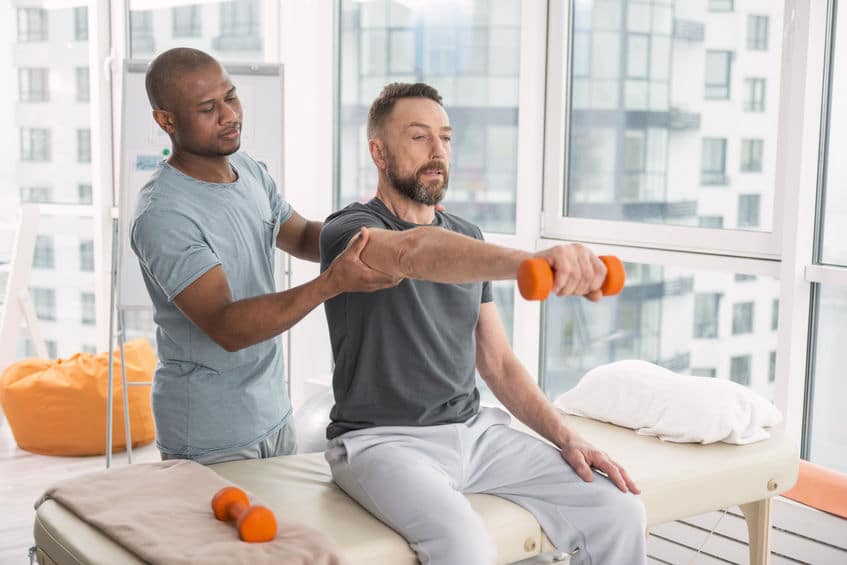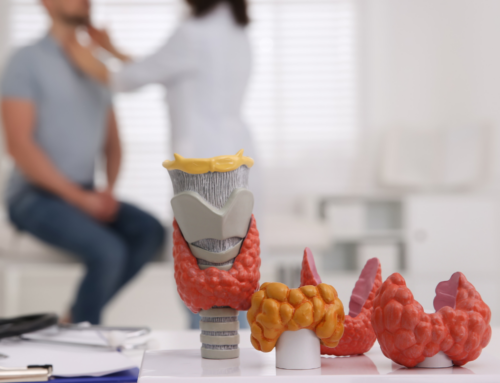Unfortunately injuries are a part of everyone’s life journey. Luckily there is a way to improve your recovery and get back to what matters most. It is the aspect of you; or to be more specific, your mind. The mind has an effect on our state of well-being and what we are capable of. Like the saying goes, mind over matter. At its heart is a simple concept that the better the attitude with which you approach an injury or recovery, the easier the process will be and ultimately the faster you recover.
But more often than not, injuries tend to throw our lives into some level of chaos. Recovery is a hard journey because each individual will be dealing with a loss of some type, whether that is an ability, normality or convenience. This is why an individual tends to experience the 5 stages of loss/grief when going through an injury. This includes denial, anger, bargaining, depression, and acceptance. Some linger at different stages longer than others and have difficulty truly embracing the rehab process, thus making recovering from the injury seem insurmountable.
We have seen over and over again, where patients of all backgrounds and ages are struggling to understand that rehab from injuries and/or associated medical interventions required is a process. At times, it can be a slow, extremely frustrating process and can very rarely be rushed with any long-term success. As a patient, you control so many elements of your treatment. Especially the mindset you approach your recovery with.
Fortunately there are many ways to enhance the physiological well-being during the recovery process.
1. Acception
You must accept the injury and where it has left you. You can’t change what happened. You are allowed to be angry, sad, frustrated, embarrassed, etc. but it won’t change what happened. This doesn’t mean that you accept that this is how you will be for the rest of your life– this is just your current condition. The faster you can look at where you are in relation to where you were objectively, the faster you can start rehabbing your injury and your mental health. This is a difficult thing for nearly everyone. Much like when training for an athletic event, or trying to get back into shape, the faster you can realistically see your short comings, the faster you can start correcting those deficiencies and make yourself better. This may be the hardest and yet most important steps in your recovery, and yet can’t be faked or rushed. Each of us grieves in our own matter, and if we want to get back to living our lives then you must accept what has happened.
2. Embracing the Current Norm
The next logical progression of getting your mind right during recovery is to embrace the rehab process. After your physical and emotional state is recognized, it is important to engross yourself in the process. Yes, this means listing and actively participating in the rehab. This includes asking questions of your PT and PTA. Telling them when things are getting easy in the clinic or at home and doing the home program activities.
Exercise has been clinically tested to enhance physiological well-being as well as having physical benefits. It may not be what you could do previously and that’s frustrating but do what you can in your current state. These exercises may be irritating due to de-conditioning. While exercises are so simple when looking at it once the movement is broken down into smaller pieces and performing that small action on its own is so foreign, it is more difficult than the original movement. This is why it is important to do them and ask why. If you were an athlete prior to the injury or someone who sees exercises as a means to an end, view rehab as your new training regimen for the time being, creating a new foundation that is stronger than the previous one.
3. Give Yourself a Break
Rehab is a very difficult thing for most patients. There are peaks, plateaus and even regressions in the rehab process and know that going in. It is understandable if you are not enjoying the times where you’re not progressing in a linear manner but be prepared that it is going to happen. You will want to take the positives from those times and know that good things are coming. Try not to focus on the negatives and seek out the silver lining.
4. Communicate
Communication is key. As social beings we require interaction with others for our psychological wellness. Tell your PT or PTA in Physical Therapy how you are doing in dealing with the injury no matter what. If you are frustrated, be frustrated, if you’re sad, be sad but then talk about it. In physical therapy, we are always adjusting our treatment to adapt to the situation. This is increasingly difficult when we are uninformed as to your current mental state. Some are more apt to see emotions than others. It is up to the whole rehab team to commutate those emotions and that team includes the PT, PTA, PT staff, Physician if applicable and patient. The more you talk about your emotions and struggles the more you often find a solution or at the very least feel that you’re being heard and grant you peace of mind.
5. Make Time for You!
Much like training for a sport or keeping yourself in your best shape and health, it can be exhausting. Make sure you take time away from the rehab and the injury. This can be difficult depending on the injury but then again it doesn’t have to be elaborate. Go see a movie, have a cup of tea or coffee, go see friends and family, or use the time to discover more of yourself than you have been able to due to time, willingness, or other limitations. Boredom and downtime can be pitfalls for rehab of the body and mind. So, find constructive ways to use your newly acquired time.
Using these tips can be helpful ways to physically and psychologically recover from injury, but remember the onus is on YOU.
It’s on you to seek help when needed and power through when you are able. We are stronger than we give ourselves credit for and can-do incredible things. But you may find yourself teetering between stages of grief or having difficulty keeping your mind on the task at hand. Know that you are not alone in this process.








